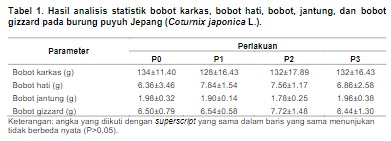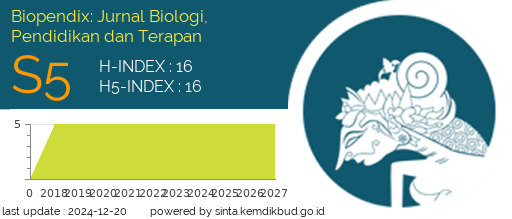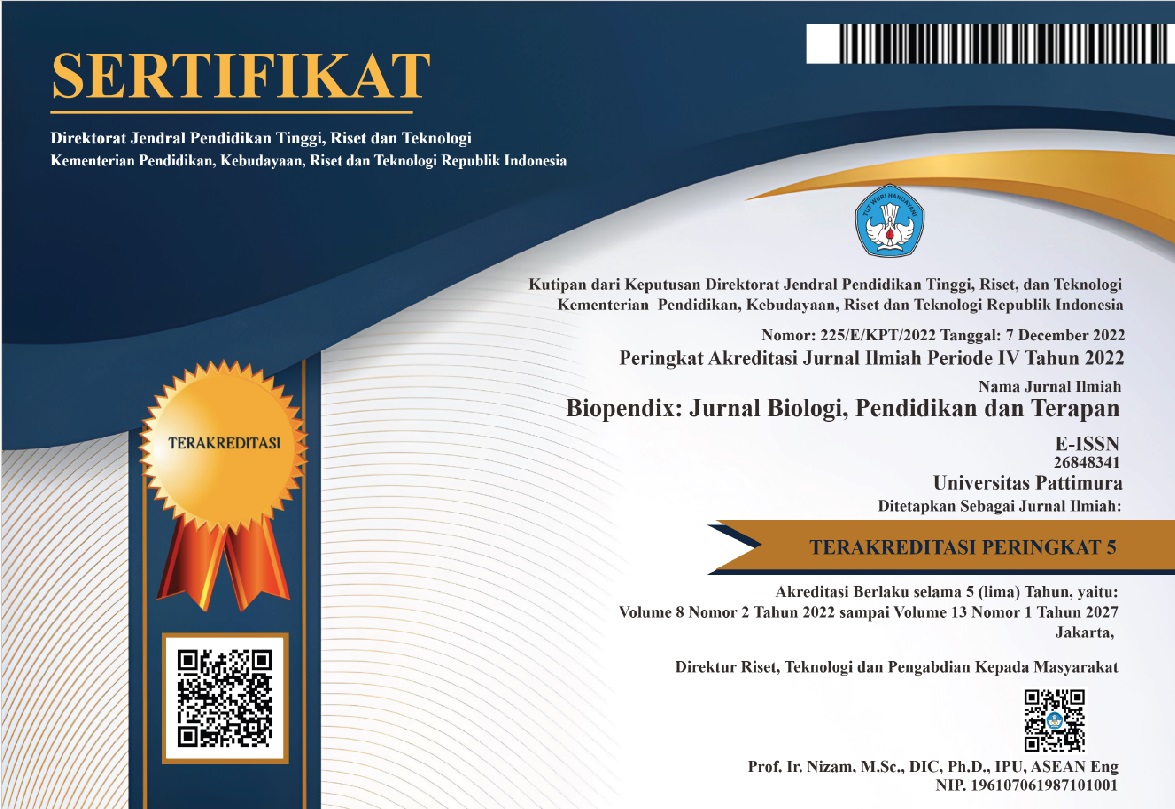PEMBERIAN RAMUAN HERBAL SEBAGAI FEED ADDITIVE TERHADAP BOBOT KARKAS DAN ORGAN DALAM BURUNG PUYUH JEPANG (Coturnix japonica L.)
Abstract
Background: Japanese quail (Coturnix japonica L.) is a source of animal protein that can meet the nutritional needs of human with the fastest production cycle compared to other poultry. Japanese quail livestock business has several problems that must be faced. The problem is the growth is not optimal, so that body weight and egg production are still varied. The aim of this study is to test the herbal concoction as feed additives to the carcass and organ weights in Japanese quails (Coturnix japonica L.).
Methods: This study is an experimental study with a completely randomized design (CRD). Test animal used in this study was 40 female Japanese quail (Coturnix japonica L.) taken randomly from 80 female quails. Quails that have been selected are divided into 4 experimental groups. P0: control (not given herbal ingredients); P1: treatment is given 3 ml of herbal diluted with 1 liter of drinking water; P2: treatment is given 6 ml of herbal concoctions diluted with 1 liter of drinking water; P3: treatment is given 9 ml of herbal concoction which is diluted with 1 liter of drinking water. The parameters observed included carcass weight, heart weight, liver weight and gizzard weight. The data obtained were analyzed with a variant (ANOVA), if there was a significant difference followed by Duncan's test at a significance level of 95%. Analysis with SPSS 16.0 software for Windows.
Results: The provision of herbal concoction as feed additives for carcass weight, liver weight, heart weight and gizzard weight in Japanese quail (Coturnix japonica L.) was not significantly different.
Conclusion: The provision of herbal concoction as feed additives statistically was not significantly different but physiologically does not have negative effect to carcass and internal organs weight of Japanese quail (Coturnix japonica L.).
Downloads

Authors who publish with this Journal agree to the following terms:
- Author retain copyright and grant the journal right of first publication with the work simultaneously licensed under a creative commons attribution license that allow others to share the work within an acknowledgement of the work’s authorship and initial publication of this journal.
- Authors are able to enter into separate, additional contractual arrangement for the non-exclusive distribution of the journal’s published version of the work (e.g. acknowledgement of its initial publication in this journal).
- Authors are permitted and encouraged to post their work online (e.g. in institutional repositories or on their websites) prior to and during the submission process, as it can lead to productive exchanges, as well as earlier and greater citation of published works




 2
2






